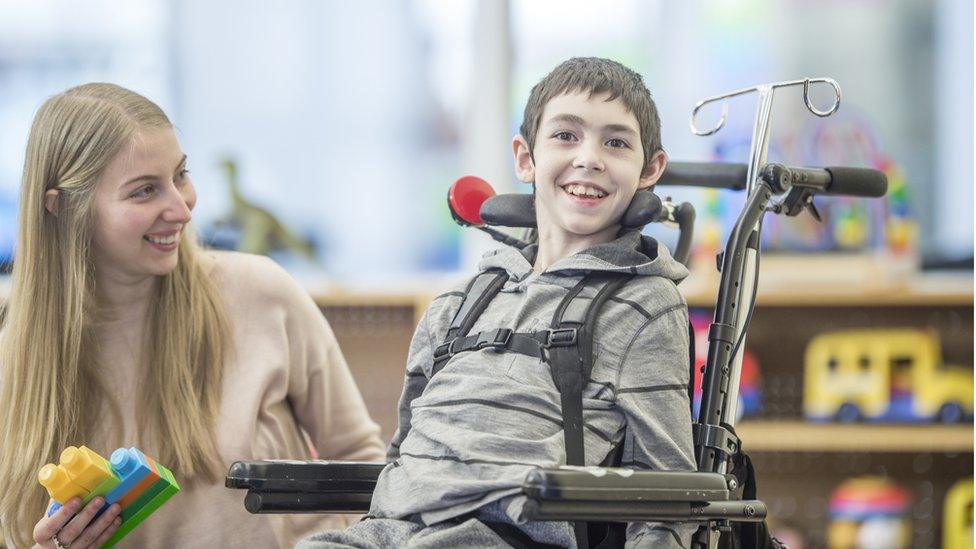Scots disabled people's human rights highlighted at UN
- Published

Governments should take urgent action to allow disabled people to access all their rights, the UN has been told
The United Nations has been told more must be done to protect the rights of disabled people in Scotland.
It comes after the .
A new report says both the UK and Scottish governments need to take urgent action to allow disabled people to access all their rights.
The UK government said it offered "tailored and effective support".
The Scottish government said "effective solutions" to the problems disabled people faced "must be drawn from experiences of disabled people themselves".
The has been submitted to the UN by the Scottish Human Rights Commission (SHRC) and the Equality and Human Rights Commission (EHRC).
It said human rights should be embedded into any new laws or practices.
Both commissions monitor the implementation of the United Nations' Convention on the Rights of Persons with Disabilities (UNCRPD), in Scotland.
Their report said improvements in access to housing, education, health, law, advocacy and money were needed to ensure disabled people could live independently with dignity.
'Harness this talent'
Alastair Pringle, Scotland director of the EHRC said: "Disabled people face multiple exclusions today in Scotland. The lack of accessible or appropriate housing and transport remain major barriers to disabled peoples full participation in society.
"As a result, disabled people are half as likely to be in work as non-disabled people. Scotland suffers as a result.
"We have a large potential workforce of skilled and talented people who are unable to contribute to Scottish society - economically, socially or civically - because of removable barriers to full participation. We need to harness this talent and enable disabled people to play their full role in Scottish society".
Judith Robertson, chairwoman of the SHRC, said: "We call on the UK and Scottish governments to act urgently so that disabled people are able to access all of their rights, including the right to live independently, to work and to an adequate standard of living."
She added: "As the Scottish government and parliament considers how to utilise new devolved powers in relation to social security, the commissions particularly draw attention to the need to embed human rights into any new laws, policies and practices."
Responding to the report, a spokesman for the UK government's department of work and pensions said a disability or health condition "should not dictate the path a person is able to take in life - or in the workplace".
He added: "The UK is a world leader in this area and we are proud of the work we do to support people with disabilities and health conditions both here and abroad.
"Not only do we spend around 拢50bn year to support sick and disabled people - more of our GDP than many other countries including Japan, Canada and France - but we also offer a wide range of tailored and effective support.
"We are also devolving significant new welfare powers to the Scottish government, and we will continue to work together to ensure that devolution works for the people of Scotland and the UK."
A Scottish government spokesman said: "Our Disability Delivery Plan shows our clear commitment to the principles of the United Nations Convention on the Rights of Persons with Disabilities.
"We are clear we do not want to be in the same situation as the UK government who were found to have violated the rights of disabled people through their actions."
He added: "We are committed to working with disabled people to develop a range of policies and approaches required to address and dismantle the barriers they face and have high ambitions for the changes we want to see, and disabled people deserve no less."